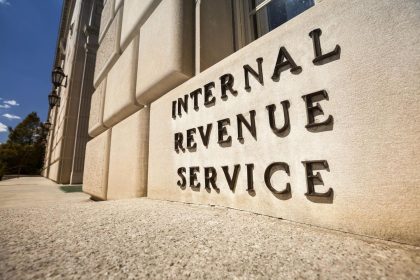The IRS suffered another defeat in the U.S. Tax Court focused on civil penalties and automatic assessments—and taxpayers have last year’s ruling in Alon Farhy v. Commissioner of Internal Revenue to thank. The question raised in Mukhi v. Commissioner of Internal Revenue, a collection due process case, was similar to that in Farhy—and the Tax Court wasn’t willing to deviate from that ruling.
Farhy Ruling
In Farhy, the taxpayer was required to report his ownership interests in foreign corporations. Specifically, he was required to file Form 5471, Information Return of U.S. Persons With Respect to Certain Foreign Corporations—failure to do so can result in significant penalties until section 6038(b). Farhy did not timely report, and the IRS assessed penalties under section 6038(b)(1) of $10,000 each year. The IRS also assessed continuation penalties under section 6038(b)(2) totaling $50,000 for each year at issue. The continuation penalty is $10,000 for each 30 days the taxpayer doesn’t comply after an initial 90-day notice period, subject to a maximum of $50,000.
Farhy didn’t dispute that he did not file nor that he had not paid. Instead, he challenged whether the IRS had the legal authority to assess section 6038 penalties.
Ultimately, the question then wasn’t whether the penalties were included in the statute (they are) but whether the IRS can assess and collect those penalties by administrative means. The Tax Court didn’t buy the IRS’ argument that it has the authority to levy those penalties systematically, nor that the agency didn’t need to take additional steps, such as civil litigation, to collect. “Simply put,” the Court wrote, “while section 6038(b) provides for penalties, it does not provide for assessable penalties.”
That was a huge finding for the taxpayer and raised questions about other kinds of assessable penalties—precisely the issue raised in Mukhi.
Mukhi Matter
In Mukhi, the taxpayer established three entities: a foreign corporation and two foreign trusts that held foreign brokerage accounts. That means he was required to file information returns, including Form 3520, Form 3520-A, and Form 5471.
In 2014, the taxpayer pleaded guilty to one count of filing false U.S. individual income tax returns and one count of failure to file an FBAR.
(As part of the Bank Secrecy Act (31 USC §5314), every U.S. person with a financial interest in, or signature or other authority over, one or more foreign financial accounts with an aggregate value of more than $10,000 must annually report the account to the Treasury Department. You do this by filing a Report of Foreign Bank and Financial Accounts, commonly known as an FBAR.)
After the guilty plea, the IRS began looking at the taxpayer’s records to determine whether he also owed civil tax penalties. The IRS then billed Mukhi for millions, citing his failure to timely file Form 3520 (section 6677) for tax years 2005 through 2008, failure to timely file Form 3520–A (section 6677) for tax years 2005 through 2010, and failure to timely file Form 5471 (section 6038(b)) for tax years 2002 through 2013.
As a result, the taxpayer filed a protest with the IRS Office of Appeals, which concluded that there was no basis for relief. The IRS then moved to collect, and the taxpayer requested a Collection Due Process (CDP) Hearing, challenging the underlying liabilities and suggesting that he wanted to consider collections alternatives, including an installment agreement and an offer in compromise. After the taxpayer could not reach a satisfactory result at the administrative level, he moved the matter to the Tax Court.
The taxpayer made several arguments, but the most interesting was that the international information return penalties were unconstitutional. Specifically, the taxpayer contended that the penalties imposed under sections 6038(b) and 6677 violated the Eighth Amendment’s excessive fines clause.
Court Findings
The Court ultimately found that an analysis of the penalties under section 6038(b) wasn’t necessary, referring to Farhy. “Here,” the opinion stated, “[t]here is an independent, nonconstitutional basis to resolve the issue…” The Court then specifically cited Farhy, noting that the IRS had assessed penalties under section 6038(b) against the taxpayer “without the authority to do so.” That means, the Court ruled, that the IRS could not proceed with collecting the section 6038(b) penalties from the taxpayers via the proposed levy or lien. “Therefore,” the Court wrote, “there is no need to reach the constitutional issue of whether the penalties under section 6038(b) violate the Excessive Fines Clause.”
This was an argument that the IRS anticipated and suggested that the Court should revisit and overrule Farhy. Referencing stare decisis—a Latin phrase which translates “to stand by things decided”—the Court voted it would “afford precedential weight to our prior reviewed and division opinions.” In other words, they weren’t willing to give it another look, having previously decided a similar issue.
(The Court also found that the mere fact that Farhy is currently on appeal at the D.C. Circuit was insufficient grounds to put it aside. Mukhi was appealable to the Eighth Circuit, making any ruling from the D.C. Circuit not binding anyway.)
The Court also rejected the taxpayer’s Eighth Amendment arguments related to section 6677. “The amount of the forfeiture must bear some relationship to the gravity of the offense that it is designed to punish,” the Court wrote before noting that it must first determine whether the section 6677 penalties are fines. That answer relied on whether the penalty serves the purpose of punishing the offense. After analysis, the Court found that the section 6677 penalties were penalties, not fines since the Court has “consistently found that the purpose of civil tax penalties and additions to tax is to encourage voluntary compliance, and therefore they are not punitive.” (The Court referred back to the U.S. Court of Appeals for the First Circuit, which found that penalties for failure to file an FBAR with the IRS are not fines.)
Finally, the Court found section 6677 penalties not to be excessive because they “have consistently held that similar penalties are not disproportionate to the fraud on the government and harm caused on the public fisc.” So, even if the section 6677 penalties are fines, they do not violate the Excessive Fines Clause.
What It Means
The takeaway? Even with an appeal pending, the ruling in Farhy continues to impact taxpayers who may face Form 5471 penalties. Whether that will change after the Eighth Circuit ruling remains to be seen. Stay tuned.
The case is Mukhi v. Commissioner of Internal Revenue (162 T.C. No. 8, April 8, 2024).
Read the full article here

















